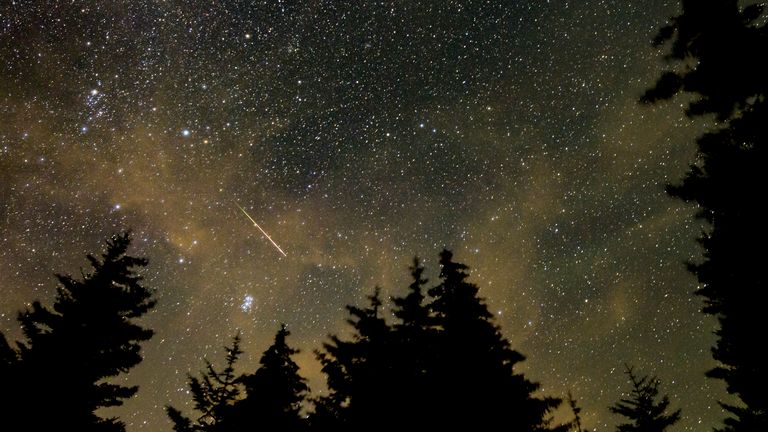A meteor shower will reach its peak across the next two nights – giving people in the UK the chance to enjoy the spectacular event with the naked eye.
The Northern Taurids are active from October until the beginning of December – but the coming days are expected to see them produce very bright meteors.
Experts say the astronomical event only produces around five meteors every hour, but they are worth the wait because of their intensity in the sky.
Forecasters say the weather should be “dry and clear for most” – but there is a risk some areas will need to wait for breaks in the cloud.
Check the forecast for your area
The Southern Taurids from the same shower peaked at the start of November and have been active since September.
The northern and southern streams become visible to stargazers when Earth passes through a cloud of ice and dust left behind by Comet Encke as it passes through our solar system.
The Taurids are described as “very slow” as they pass through the sky at 17 miles per second – or 65,000mph.
They are also spread out and this allows the shower to be visible for longer periods of time as the Earth ploughs through the comet’s debris, according to the Royal Observatory Greenwich.
The debris stream is made up of ice and rock, with the “crumbs” burning up in our atmosphere and creating the bright extravaganza.
How to watch the Northern Taurids
The best time for stargazers to view the shower is around midnight.
People can enjoy the event with the naked eye and are advised to view from an area with little light pollution and an unobstructed horizon.
They should allow their eyes to adapt to the darkness and then try to glance across the widest possible area of the sky.
Sky News weather producer, Christopher England, said most areas should be able to enjoy the spectacle.
He said: “Luckily for meteor watchers, it’s looking dry and clear for most tonight, although fog will be thickening up later.
“Eastern England will be cloudier at times, with the chance of a shower in the extreme South East.
“There should be some good breaks in the cloud there, however.
“Southern England and northwest Scotland will be much cloudier tomorrow night, but central parts can still expect lengthy clear spells.”

